Mike Hais, Doug Ross, and Morley Winograd are co-authors of a new book, Healing American Democracy: Going Local.
In the last presidential election two of the major candidates, Bernie Sanders and Donald Trump, told their supporters that the American political system was rigged—and one of them won. Many Americans agreed with their assessment. Since then the situation has only gotten worse and fear for the future of democracy has grown. The simple solution, promoted by pundits and politicians alike, has been for leadership that “brings us together.”
But we have a different idea.
Specifically, we call for a new civic ethos or governing framework which we call Constitutional Localism, that will shift the greatest number of public decisions possible to the community level—albeit within a clear constitutional framework to protect the individual freedoms and rights won over the past 250 years.
We see the pursuit by Americans of varied lifestyles and cultural preferences as a healthy sign of American freedom and choice, not a destructive force. We need to rebuild public confidence in American democracy, not by insisting on a singular national answer to each problem, but by celebrating the ability of America’s varied communities to find solutions that work best for them. As we see it, the challenge confronting the nation is to find a way to permit this range of opinion and action to flourish while restoring a shared faith in the common democratic values and processes that define American self-government.
Our prescription to provide better governance while restoring faith in democratic processes is to encourage more democracy, not less.
We believe empowering local communities promises greater benefits than simply escape from the frustrating deadlock in Washington. In the near term, it offers venues to solve real problems facing Americans, and the opportunity for citizens to experience democratic successes in more homogeneous and immediate settings. In the longer term, we see Constitutional Localism as the right way to adapt American democracy to a country with an ever-wider range of ethnicities, social mores, political philosophies, and economic opportunities without sacrificing either self-government or membership in one nation.
The “constitutional” part of Constitutional Localism is critical for us. We cannot overstate our conviction that local empowerment must not risk undermining the historical agreement on American’s individual and civil rights. A bias towards local action cannot be seen as an invitation to individual communities to selectively secede from the Constitution.
Our urgent call for a new civic ethos reflects our belief that the old New Deal structure that relies on centralized, standardized solutions does not align with the variety of life in America today. America has evolved over the past 80 years from a 90 percent-White Christian nation with 90 percent of its immigrants of European descent to one of great racial, ethnic, religious, and generational diversity. Add to that the revolutions in the status of African Americans, women, and gays, and it should come as no surprise that efforts in Washington to craft “one-size-fits-all” responses to the challenges confronting the nation struggle to find broad national majorities of support.
The misalignment between efforts at standardized federal actions and the variegated realities of American life has been accelerated by sweeping economic and social changes. Competitive advantage in the globalized economy comes increasingly from specialized, local economic ecosystems and less from federal regulations and incentives. Where America once had three national TV networks, it now has a communications world of dis-intermediated person-to-person social networks.
Survey data and realities on the ground suggest that localism’s time has arrived:
- Americans by substantial majorities believe that their local community offers the best opportunity to solve real problems.
- Localism is an increasingly crucial economic reality. As Brookings’s experts and others have documented, cities have emerged in this century as the engines of American innovation and economic growth.
- The rising generation of Millennials believes direct involvement at the community level is the most effective way to change things at the global level.
Constitutional Localism will require establishing new institutions such as government-to-government networks to allow these local “laboratories of democracy” to share innovations with other communities and bring them up to scale. Mayors should become leading actors in this effort.
Those on the left will fear Constitutional Localism as a return to states’ rights and “separate but equal”. The right will see an effort to neutralize the Trump presidency and Republican control of Congress. For those reasons, support for Constitutional Localism must be broadly bipartisan in order for it to succeed.
We believe this challenge is unique in America’s history. The Founders had to confront the question of whether a continental nation could adopt a form of government previously restricted to small city-states. Today we face the challenge of figuring out how to preserve liberal democracy in a nation with an unprecedented array of ethnicities, economic arrangements, life-style preferences, and cultural beliefs.
Unless we can find a better way to ensure that our constitutional democracy serves the country’s needs, we run the risk of losing support for democracy to the growing forces of autocracy here and abroad. The only way to unite America is to reinvigorate our common bond based on shared democratic experiences and ideals. To do otherwise risks losing our national identity to a politics from either the left or right that seems to exclude too many Americans.
We strongly believe Constitutional Localism offers a powerful and needed strategy for healing American democracy.
The Brookings Institution is committed to quality, independence, and impact.
We are supported by a diverse array of funders. In line with our values and policies, each Brookings publication represents the sole views of its author(s).


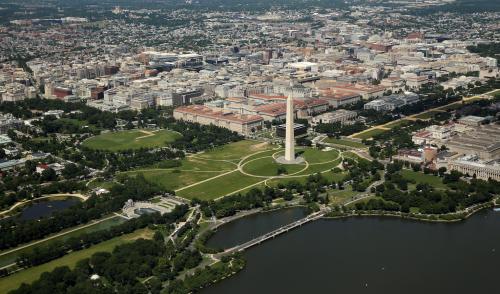
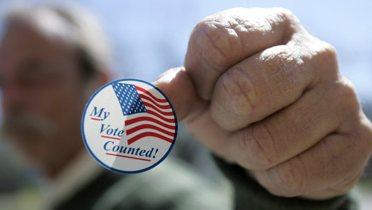
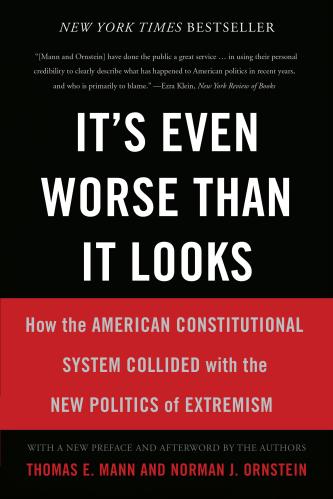
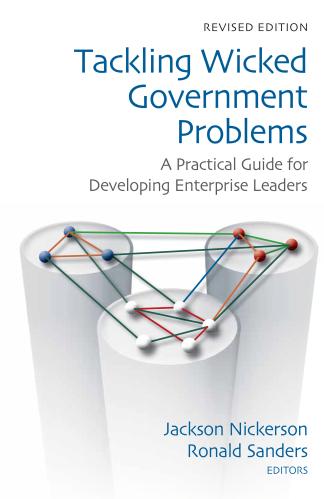
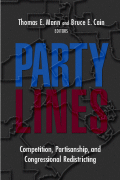






Commentary
Is Constitutional Localism the answer to what ails American democracy?
April 3, 2018